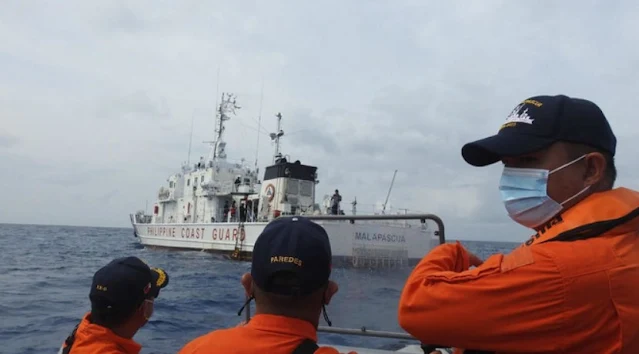 |
| Philippine coast guard personnel conduct maritime exercises near Thitu island, in the disputed South China sea. (Philippine Coast Guard/AFP) |
International Military - The conflict in the South China Sea still continues today. In this case, China has claimed that the waters are theirs. China's behavior certainly makes several countries including the Philippines feel angry.
The Philippines then took various firm stances in responding to the attitude from China. Quoted from Benar News, the Philippines has installed buoys in the area around the South China Sea. The Philippines has also established several command posts to mark and assert sovereign territory.
It should be noted that the Long Coast of the Philippines (PCG) has installed five navigation buoys, which are up to 30 feet long and are marked with the national flag. The sign is near Lawak (Nanshan), Likas (West York), Parola (Northeast Cay), and Pag-asa (Thitu).
It was also reported that several Vietnamese and Chinese fishing vessels had been around Pagasa Island. It is also known that Chinese Coast Guard ships have been seen in the vicinity of the area.
Regarding this matter, the service commander, Admiral Artemio Abu, said that his party was ready to act decisively. Philippine guard ships are ready to challenge foreign vessels if they interfere with the mission to install the navigation buoy and command post.
Last year, a Chinese Coast Guard vessel was reported to have fired a water cannon at a Philippine supply ship.
With the help of this coast guard post, Abu hopes to increase the Philippines' capability in maritime safety. Even in this case it is also expected to be able to be a savior and also a protector of the marine environment itself.
The chairman of the Philippine Human Rights Commission has given a statement. In which he said that no single country can prevent Filipino fishermen from carrying out their livelihoods. This is especially true for the Philippines itself.
